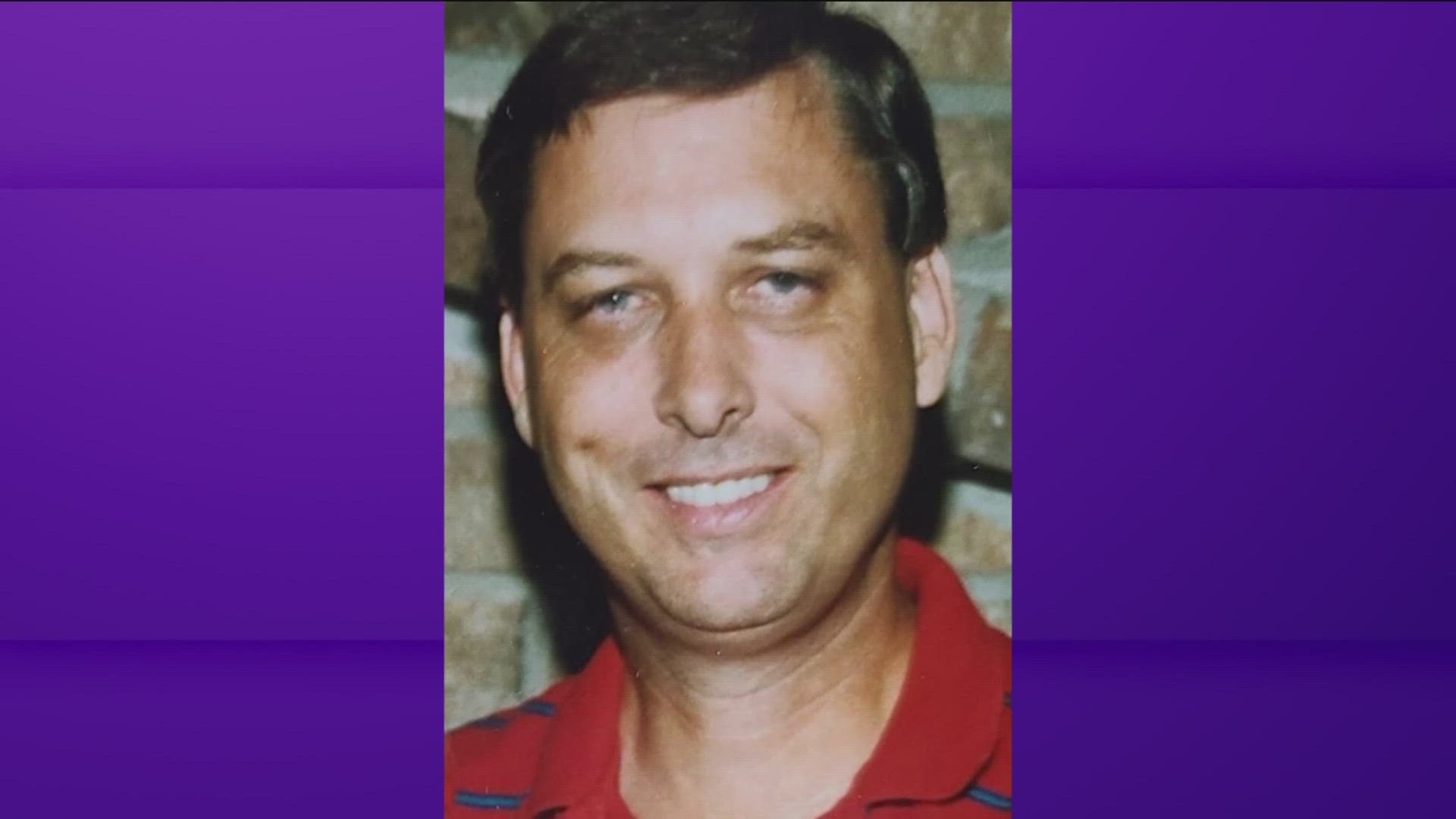FORT SMITH, Ark. — Authorities in Kentucky have identified human remains found wrapped in heavy chains and sunk to the bottom of a lake more than two decades ago.
The identity of the man had remained a mystery since the discovery of his remains in Lake Barkley by two fishermen in 1999, Kentucky State Police said in a media release. The body had been wrapped in tire chains and anchored with a hydraulic jack
Efforts to identify the man were unsuccessful until police sought help from private forensic lab and DNA analysis company, Othram Inc., which specializes in cold cases.
With the testing, they were able to link a relative to the remains, which led to the identity of the man, Roger Dale Parham.
Parham was awaiting trial on criminal charges in Fort Smith, Arkansas, at the time of his disappearance in 1999, state police said. He vanished in March of that year and was thought to have left the area to escape prosecution. State police said the FBI also got involved in the search for Parham. Parham's death is now being investigated as a homicide.
Othram Chief Development Officer Kristen Mittelman says the technology, built purposely to work with degraded crime scene DNA, has been used to identify victims as far back as 1881.


Mittleman says now that authorities know Parham wasn't on the run, they can "figure out how he got there and who may have put him there."
“We're able to infer the person's identity, give that lead back to the investigators, then they're able to do their confirmatory work, where the detective actually contacted the family made sure someone was missing, took their DNA, did a validated data, confirmatory test, confirm the analysis. And at that point, they're able to start the investigation" said Mittleman.
Othram also supports DNA Solves, an online service that collects donations and DNA from volunteers to create a more complete network of data to assist criminal investigations. Mittleman says her goal is to give families hope in the knowledge that "No matter how difficult the case is, no matter how intractable the evidence looks, there are cases just like this being solved all across the world."
"We've solved over 1200 cases ... When we started, I think we solved a handful of cases in all of 2019, and now we're talking about possibly a case a day," Mittleman said. "Hopefully we won't live in a world where there are cold cases, and people won't have to wait decades to find out who killed their loved one."
Parts of this article was contributed by the Associated Press.
Watch 5NEWS on YouTube.
Download the 5NEWS app on your smartphone:
Stream 5NEWS 24/7 on the 5+ app: How to watch the 5+ app on your streaming device
To report a typo or grammatical error, please email KFSMDigitalTeam@tegna.com and detail which story you're referring to.

